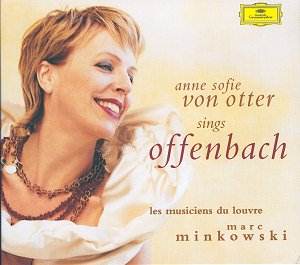

BUY NOW
La Grande-Duchesse de Gérolstein: Choeur, Récit et Rondeau "Portez armes!" Vous aimez le danger ... Ah, que j’aime les militaires", Duo et Déclaration "Oui, Général, quelqu’un vous aime ... Dites-lui qu’on l’a remarqué", Chanson militaire "Ah! C’est un fameux régiment", Fantasio: Ballade "Voyez dans la nuit brune", Duo: "Quel murmure charmant soudain viens-je d’entendre?", Le Carnaval des Revues: Symphonies de l’avenir – Marche des fiancés, Madame L’Archiduc: Sextuor de l’Alphabet "SADE", Les Contes d’Hoffmann: Entr’acte et Barcarolle "Belle nuit, ô nuit d’amour", La Belle Hélène: Chœur de jeunes filles "C’est le devoir des jeunes filles", Air "Amours divins! Ardentes flammes!", Barbe-bleue: Couplets "Y’a des bergères dans le village", Ouverture à Grand Orchestre, Lischen et Fritzchen: Duo "Je suis alsacienne", La Vie Parisienne: Finale du Deuxième Acte "Nous entrons dans cette demeure", La Fille du Tambour-Major: Chanson "Que m’importe un titre éclatant", La Périchole: Griserie-Ariette "Ah! Quel dîner je viens de faire"
Chœur des Musiciens du Louvre
Les Musiciens du Louvre/Marc Minkowski
Recorded live at the Théâtre du Châtelet, date not given